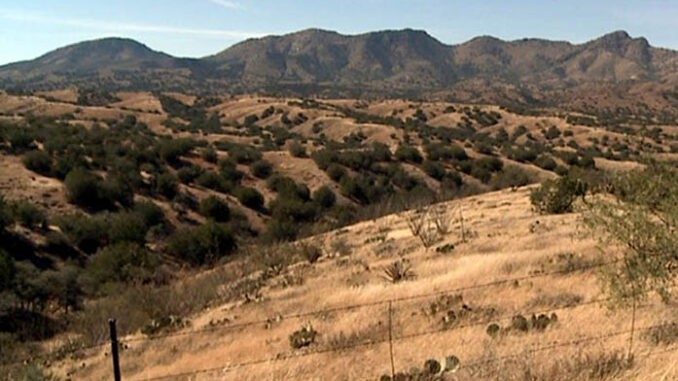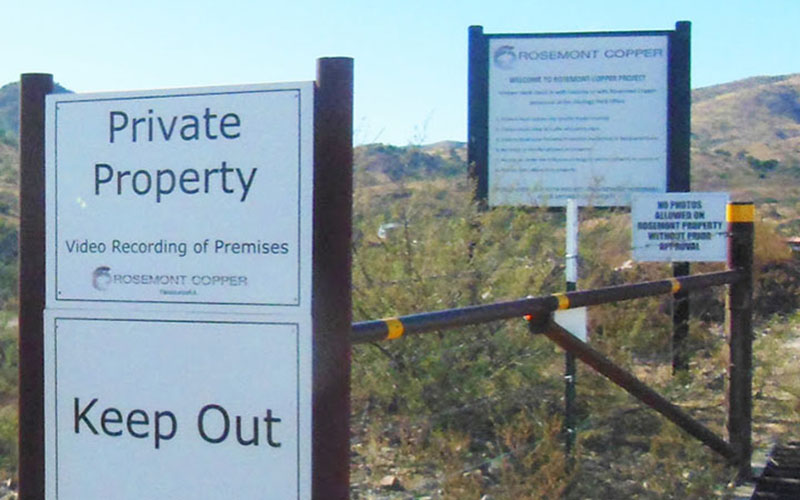
WASHINGTON – The U.S. Army Corps of Engineers suspended a Clean Water Act permit for the proposed Rosemont Mine site in southern Arizona, the latest development in more than a decade of legal challenges from tribes and environmental groups.
The Aug. 23 decision by the Corps followed a July 31 court ruling that found the analyses used to determine environmental impact of the mine were “inherently flawed.” That ruling by U.S. District Judge James Soto was handed down one day before work was scheduled to begin at the mine.
Opponents welcomed the ruling and the Corps’ decision, saying permits for the mine “should never have been granted in the first place.”
“If we wanted to, I suppose we could say, ‘I told you so,’” said Roger Featherstone, director for one of the groups involved in the suit, the Arizona Mining Reform Coalition.
But the mine’s owner, Toronto-based Hudbay Minerals, said in a statement earlier this month that the court “misinterpreted federal mining laws and Forest Service regulations.”
Scott Brubacher, the company’s communications director, said in an email that the company anticipated the Corps’ decision to suspend the permit and that it plans to appeal the Soto’s decision to the 9th U.S. Circuit Court of Appeals. He said the company anticipates the permit “will be reinstated upon the successful outcome of the appeal.”
Hudbay claims that the open-pit mine would be the third-largest copper mine in the U.S., producing an average of 112,000 tons of copper a year, or about 10% of total domestic production.
The mine would directly support an estimated 500 full-time jobs in Pima County and generate $350 million in total local taxes over the course of its life, according to the company. The project encompasses about 5,000 acres in the Santa Rita Mountains, while the mine itself would directly affect 955 acres of private federal lands, according to the Forest Service.
The company claims that its project has been subject to more than 1,000 studies and years of review by 17 different government agencies in pursuit of approval for the mine. But the four environmental groups and three tribes that were part of the latest challenge said those studies were flawed and Soto agreed, overturning the Forest Service’s 2017 final approval for the project.
As a result, Army Corps Brig. Gen. Peter Helmlinger wrote Hudbay on Aug. 23 that a previously issued permit allowing the company to discharge dredge or fill from the mine into local waterways had to be rescinded.
“I have determined it is in the public interest to suspend the permit in accordance with our regulations,” Helmlinger wrote.
Mark Petersen, public affairs officer for the Corps’ South Pacific Division, said the Corps cannot speculate on how and when it would make a final decision until there is further action by the court.
While Hudbay said it expects to win on appeal and win back its permits for the mine, Featherstone said he is just as confident the district court’s ruling will hold up in higher courts.
“Judge Soto made a very strong ruling,” Featherstone said. “We’re confident that if it is appealed, the 9th Circuit would uphold it.”

